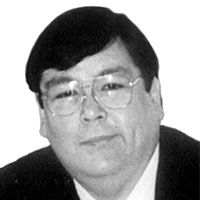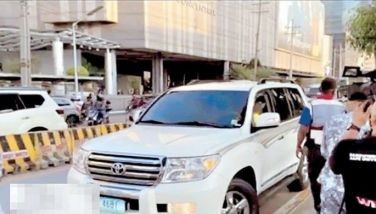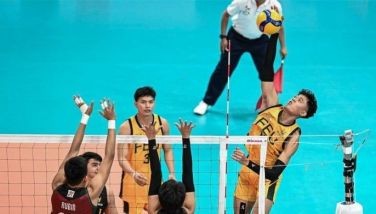How the economy of communion bridges the wealth gap

When Chiara Lubich, the founder of the Focolare Movement and one of the greatest women of our time, was about to land in Sao Paolo, Brazil in May 1991, she saw from the airplane the hovels of poor people surrounding the enclaves of the rich. The sight made her wonder how a society can find peace and harmony when such a socio-economic polarization exists. That started Chiara Lubich’s inspiration the Economy of Communion (EoC).
Attempts to bridge the Wealth Gap could range from revolution to outright state confiscation and redistribution of wealth. In between these two severe prescriptions is state taxation where the rich are heavily taxed in order to give to the poor.
History teaches us to avoid these approaches, which sometimes brought humanity to worse conditions. Revolutions promote a cycle of violence, lasting hatred and cultural polarization. State confiscation and redistribution of wealth as well as heavy taxation of the rich usually triggers capital flight that will render the country more impoverished.
EoC offers a solution that does not carry the negative effects of revolution, state confiscation or high taxation. EoC gives the owner of the wealth (and the means to produce wealth) the freedom and the initiative to distribute the wealth thereby promoting a better climate for generating more wealth.
EoC inspires the natural propensity of man to share and distribute wealth. By creating a fraternal kinship and a caring environment, EoC companies inevitably become harmonious workplaces. The core values of EoC the communion of the haves and the have-nots under a climate of openness and reciprocal respect and love ensure the harmony under which greater wealth is generated.
This is how the Economy of Communion (EOC) works:
1. EoC ensures the right of the investor to make a decent return on his investment. The investor freely takes from the net income of the company his targeted return on investment be it 20%, 25% or 30%. That is a reward due him and the company’s stockholders for investing and taking a risk in the venture. He may also allocate for himself a salary from the operation. It’s his option whether to just earn a salary, make a return on investment or get both.
2. The residual profit is then divided into three parts intended for the following:
The first part is for further reinvestment in the company. This can be in the form of capital equipment to replace aging machinery or money for expansion so that more economic opportunities are created. The benefits of the workers and their share of the profits also increase with business expansion and growth.
The second part is for the lesser privileged in the EoC community so that their standard of living can be raised. The EoC community is the circle of people covered by the profits that can be shared. Foremost logical beneficiary is of course the worker. Then this circle can include an adopted poor community. The gap between the haves and the have-nots are thus reduced and this fosters unity and harmony in the community.
If a community has already achieved a desired distribution of wealth, this part can be shared with other communities in the world, which then makes the communion global.
The third part is for the creation of structures for the new man. It is a realistic need that value formation comes with attendant costs. Seminars and other value formation activities need to
There are no set rules for determining the three parts as these may be equally apportioned or one may be greater than the other two. No two industries are alike and the EoC recognizes the need for flexibility. The spirit of communion/sharing is not bound by dogma but is exercised in freedom.
EoC works and is not a system or model that can only work in heaven. EoC has chalked up a track record of success with over 750 companies in five continents where the Focolare has spread its mission of unity. The Focolare is present in over 180 countries including Muslim states like Syria, Iraq, Turkey, Libya, Jordan, Iran and Algeria. EoC may appear to have been crafted for the third world countries and economies. However, there are many companies in the developed countries notably in North America, Australia and Western Europe who have also adopted it.
They saw the EoC as yet the most equitable system that delivers the following benefits:
1. The investors make their desired returns because EoC must ensure that the business should be profitable otherwise there will be no profits to give and share.
2. Being people-oriented, EoC assures the workers a fair share of the fruits of their labor. The firm achieves industrial peace and harmony. EoC companies enjoy production efficiency; wastage is very minimal because of high worker morale and reciprocal concern for the owners who take good care of them.
3. The EoC improves the standard of living of the poor members of the company and the EoC community not through a dole out but in a way where the beneficiary has contributed to his benefit. This is the essence of communion one person brings his surplus while the other brings his need into the relationship.
4. The EoC ensures the further growth of the venture by the profits that are plowed back for reinvestment.
5. Because values are the underlying foundations of the EoC, the laws are followed to the letter, taxes are dutifully paid, and the environment is protected, among other good practices.
A steel foundry in Brazil employs as many as 8,000 workers and operate in a climate of sustained profitability, growth and harmony. Bangko Kabayan, an EoC rural bank based in Batangas, has profited from micro lending an operation very few banks ever venture into. Bangko Kabayan grew with the poor folks they financed and has expanded its operations into 19 branches, making Bangko Kabayan the biggest rural bank in the region.
An EoC community can mushroom into an economic zone when other businessmen are attracted by the profits and the climate of industrial peace and maximized productivity. There are already EoC industrial parks in two continents, one in Italy and another in Brazil.
In an economically viable community where people can send their children to better schools, live in harmony, and afford better things in life democracy thrives. The people of such communities eventually learn the importance of their vote, their responsibilities as voters and how they can make the democratic system work for them.
* * *
Chair Wrecker e-mail and website: [email protected] and www.chairwrecker.com
- Latest
- Trending




























